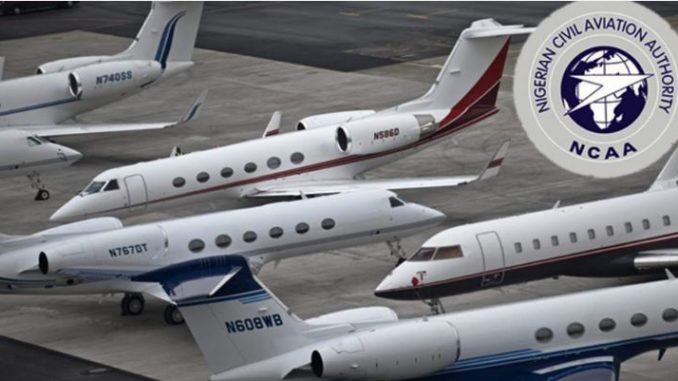
After two years of repeated statements of intent, the Federal Government moved a step towards its dream of a national carrier recently by appointing a group of advisers to actualise this long-nurtured ambition and develop other aspects of the domestic aviation industry. While restructuring and liberalising the sector is long overdue, the government should halt any misguided lunge at state ownership of commercial enterprises.
According to Hadi Sirika, Minister of State, Aviation, a group of six firms, among them, Lufthansa, the German airline, has been hired at $4.99 million to advise on the actualisation of a new Nigerian carrier, development of required aviation infrastructure to create West African aviation hub and creation of an aircraft leasing company. This is the latest step in the Muhammadu Buhari government’s determination to revive Nigeria’s crippled aviation sector. Apart from being a campaign promise, Rotimi Amaechi, the Minister of Transportation, has since his appointment spelt out the government’s misplaced interest in reviving the carcasses of the state-owned airline, shipping company and massive borrowing and spending on the state-owned railway monopoly.
The government’s interest in a robust aviation industry is spot-on. Recognised as a catalyst for socio-economic development, providing the fastest, safest means of transportation of persons and cargo within and between countries, it is a major plank of the tourism and hospitality industry. The International Air Transport Association said the industry’s revenue doubled from $369 billion in 2004 to $746 billion in 2014. And taken together with ancillary industries, it contributed $2.4 trillion to global Gross Domestic Product in 2015, according to PwC, the global consultancy, supporting 58 million jobs.
In Nigeria, the industry once showed promise, with the defunct Nigeria Airways which, at a time, had over 30 aircraft and Okada Air 20; post-deregulation, the number of registered carriers rose to 144 by 1995 and a pool of professionals was growing up till the late 1990s. A 2015 report by Phillips Consulting said Nigeria’s aviation industry supported 254,500 jobs across the value chain, contributed $940 million to the GDP, 49 per cent or $462 million coming directly from airports, airlines and ground services; with additional $464 million from tourism.
The potential and benefits of a thriving aviation industry to the national economy – supporting hundreds of thousands of jobs, boosting tourism, skills and technology acquisition and improving our global image – compel innovative measures, clear thinking and the political will to drive reforms. We should not however miss our way in the quest for greatness. First, the advisers should be given the leeway to deploy their wealth of knowledge: government should not lean on the experts to bend to its obvious desperation for a “national carrier” that will re-entangle the state in commercial ventures.
Designating a flag carrier to utilise Bilateral Air Services Agreement opportunities does not mean government should own an airline. Unlike elsewhere, our landscape is a vast graveyard of failed state-owned enterprises. Nigeria Airways, Nigerian National Shipping Company, National Bank and many other banks are examples. The state oil company continues to make losses despite having the 10th largest oil reserves in the world and a monopoly on domestic refining. Rather, the route to success is privatisation and true liberalisation: not a pseudo reform that would hand over aviation sector assets to incompetent emergency consortia.
To attract the massive foreign direct investment that is needed to fulfil the promise and rival South Africa and other regional hubs, transparently executed privatisation accompanied by liberalising laws and regulation is the tonic needed. In granting concessions to run Lagos, Port Harcourt, Abuja and Kano international airports, it is imperative to opt for targeted or guided regulation where reputable global brand names will be invited. There is today no Nigerian company or “consortium” that has the expertise to transform these locations to the scale that would rival or outpace Johannesburg, Addis Ababa, Nairobi, Cairo and Casablanca.
The highest bidder route that allows officials to manipulate the process should give way to attracting the world’s best by assigning priority to technical, financial and managerial expertise and ongoing successful operations elsewhere. Ours is to negotiate the best favourable terms for the country, including guarantees of minimum minority domestic equity participation, local content and a regulatory framework that ensures job creation, skills acquisition and promotion of domestic ancillary industries. Apart from de-nationalising British Airways, Britain privatised its major airports, with foreign investors taking up majority equity in several. The Dutch, French, German and Kenyan governments privatised KLM, Air France, Lufthansa and Kenyan Airways respectively to revitalise their domestic aviation sectors.
The regulatory agencies need urgent reforms. They are notorious for promoting corruption, inefficiency and laxity. Restructuring should, if necessary, include head-hunting professionals from other countries to reorganise statutory agencies. Regulation is often, says the International Financial Corporation, the deciding factor in fostering a successful aviation or tourism market.
END

Be the first to comment